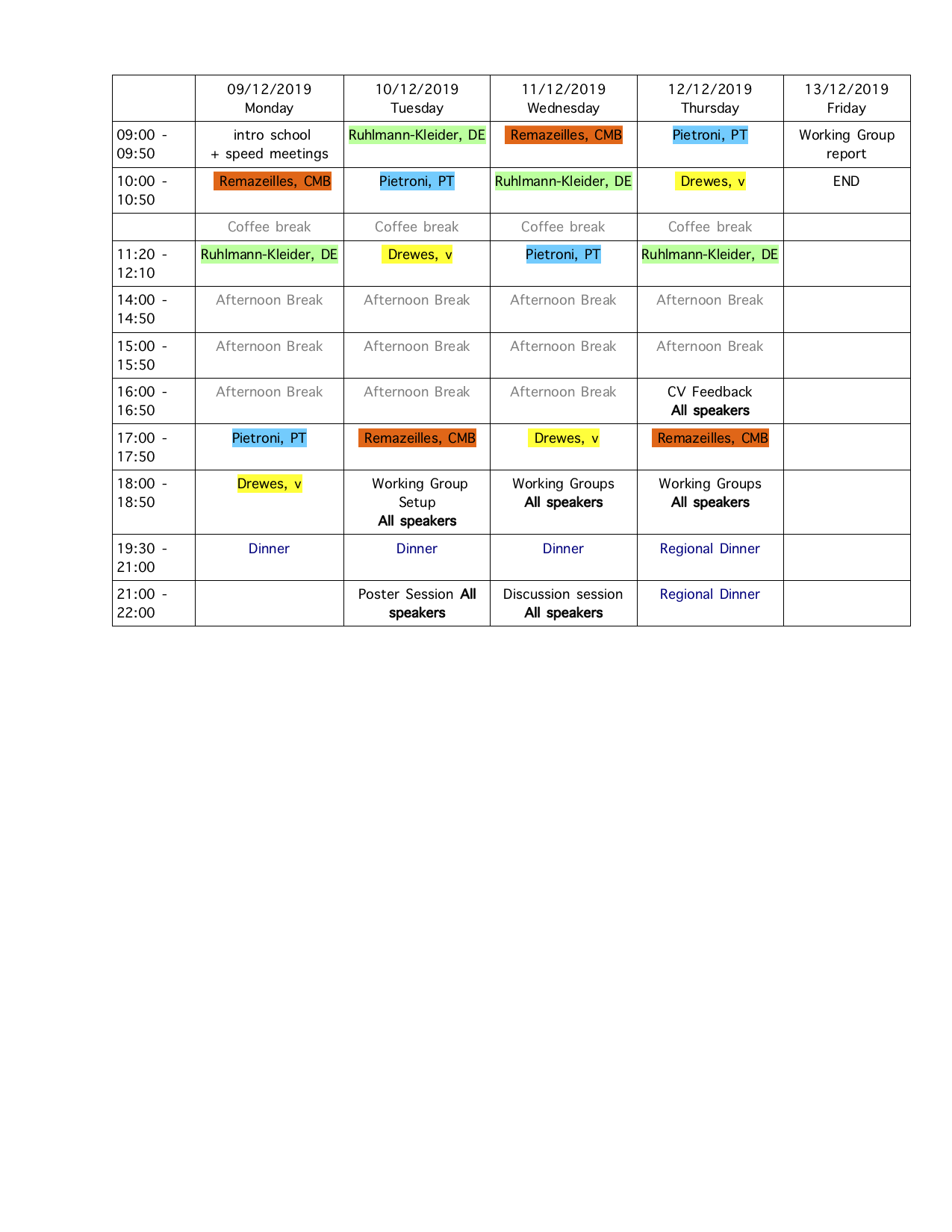Neutrino Cosmology
Marco Drewes (UC Louvain)
— The solar neutrino problem
— Massive neutrinos in cosmology
— Sterile neutrinos as Dark Matter candidates
— Leptogenesis: Neutrinos as the origin of baryonic matter
Non-linear perturbation theory
Massimo Pietroni (INFN Padova)
These lectures will aim at providing an introduction to analytical approaches to nonlinearities in cosmology, from theoretical foundations to applications. A tentative list of topics is:
— Formulating the problem: Vlasov-Poisson system for collisionless Dark Matter;
— Coarse Graining and the Perturbative expansion;
— Large scales and consistency relations; effective approaches to small scales;
— Applications: Power Spectrum, Bispectrum, Baryonic Acoustic Oscillations, beyond $\Lambda$CDM.
Testing Dark Energy with current and future observations
Vanina Ruhlmann-Kleider (CEA Paris),
These lectures will start with a reminder about the historical cosmological probes, namely CMB spectra, type Ia supernovae, BAO scales. For each probe, a brief description of the underlying physics will be given, and current results and prospects from future surveys will be presented. Then, emerging probes related to matter clustering, such as redshift space distortions and weak lensing will be introduced and their current status and prospects will be discussed.
CMB polarisation and spectral distortions
Mathieu Remazeilles (U Manchester)
These lectures will aim at giving an overview of the new scientific challenges to overcome in observational cosmology with next-generation Cosmic Microwave Background (CMB) observations. The following list of topics will be covered:
- State-of-the-art of CMB science after Planck
- The challenge of foregrounds I: An overview of the components of emission in the sky at radio and millimetre wavelengths
- The challenge of foregrounds II: Component separation methods
- Future CMB experiments: LiteBIRD, Simons Observatory, and others
- Future CMB science: CMB B-mode polarization anisotropies and CMB spectral distortions. How to detect these elusive cosmological signals? Which new cosmological information do they carry?
Schedule


